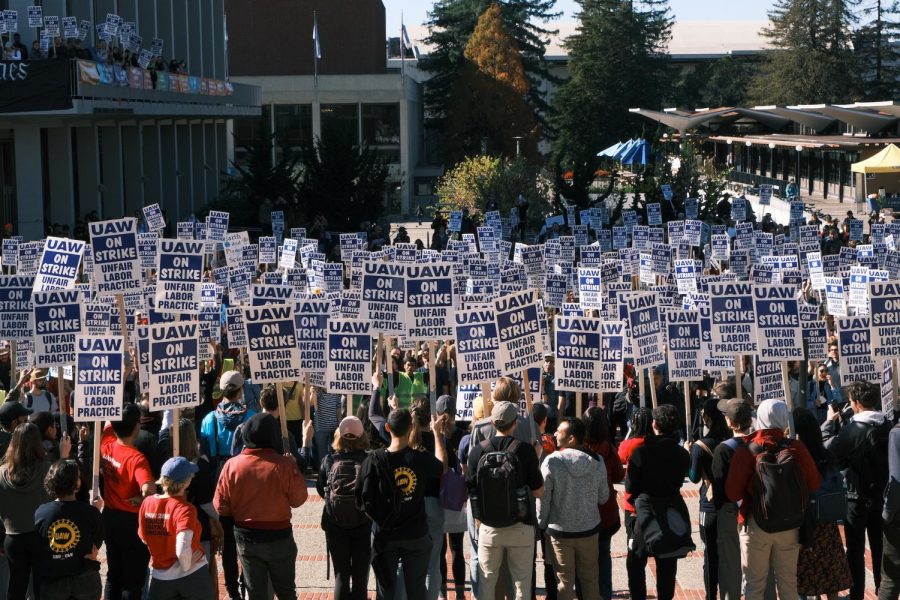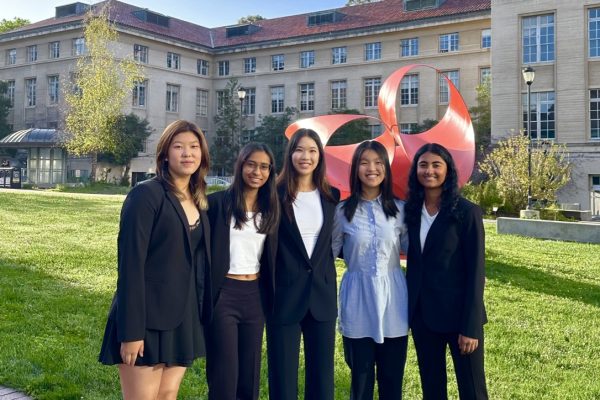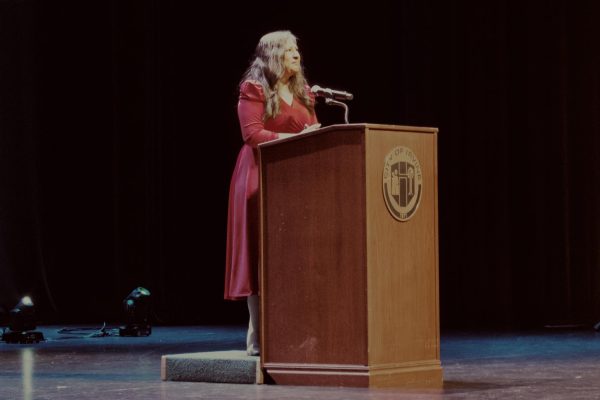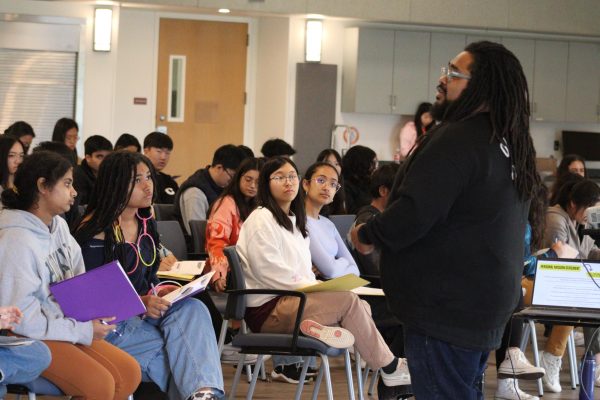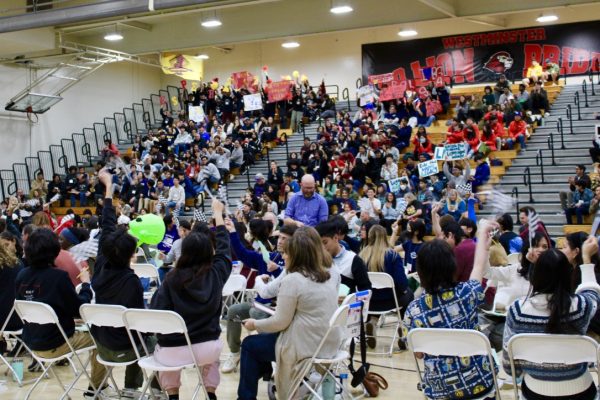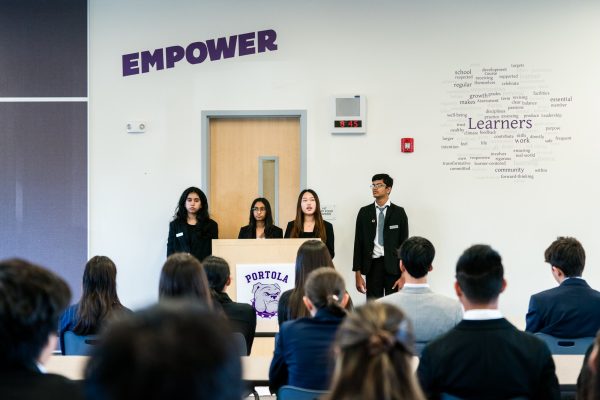Ongoing UC Strikes Create Higher Education Academics History
Students and workers gather at Berkeley, California to protest unfair wages and working conditions as part of a larger UC-wide strike.
Nearly 48,000 education workers across University of California’s 10 campuses have been protesting for higher wages and fairer working conditions since Nov. 14, making it the largest higher education academic strike in U.S. history, according to The Guardian.
Though negotiations are still in progress, the UCs reached a tentative agreement on Nov. 29 with the United Auto Workers (UAW) for postdoctoral scholars and academic researchers on a five-year contract. It will be effective until September 20, 2027 and includes fair compensation, job security, paid family leave, wage increase, child care and promises for a respectful work environment, according to the University of California.
English student teacher Juliette Nguyen is a teacher candidate of the MAT credential program at the University of California, Irvine and participated in the strikes at her campus. Nguyen and many of her classmates joined a group of strikers who were picketing outside her classroom after recognizing a student-teacher who taught them during a summer class.
“Just the fact that we saw someone who helped us during our summer session – he graded, he came for office hours and was a very supportive person,” Nguyen said. “To see him at the strike, it kind of flipped the switch for every one of us. The thing is, we student-teach for free, and a lot of the graduate students do extra work for free, and yet we still have to pay a lot of fees to get into the program, and our wages are just not enough.”
Some strikers used methods, such as speeches, sit-ins and picketing, while others made loud commotions to attract attention for the movement, according to Nguyen.
Protestors and strikers demand higher minimum salaries of $54,000 for grad workers and $70,000 for postdoctoral researchers, claiming that current wages are not enough to pay for public transit passes, childcare and dependent healthcare, according to ABC news. Many are angered that some graduate students allegedly make up to $600,000 a year, while others are struggling to pay rent, according to the San Francisco Chronicle.
To respond to these demands, UC universities claim to have conducted over 50 bargains and have agreed upon 95 tentative agreements on a variety of issues since spring 2022, according to ABC news. However, the protests are ongoing as many workers are still unhappy about their working conditions and contracts.
Many UC professors also stood in solidarity with the movement by changing their course schedules to accommodate the students participating in the strikes, according to social studies teacher and UCI methods professor Jon Resendez.
“I always think that workers standing up for worker strikes are positive and necessary,” Resendez said. “In fact, it’s historically the labor unions why we have certain righteous expectations. We have this conception of a forty-hour work week, only working five of the seven days, and if we work in a particular place for a longer period of time, we become more valuable.”
Though it is not clear when the strikes will end, negotiations are being made and it is predicted to continue throughout December, according to the New York Times.
Your donation will support the student journalists of Portola High School. Your contribution will allow us to purchase equipment and cover our annual website hosting costs.

Hannah Ko is the assistant Opinion Editor for her second year on the Portola Pilot. This year, she is looking forward to depriving herself from sleep and...



